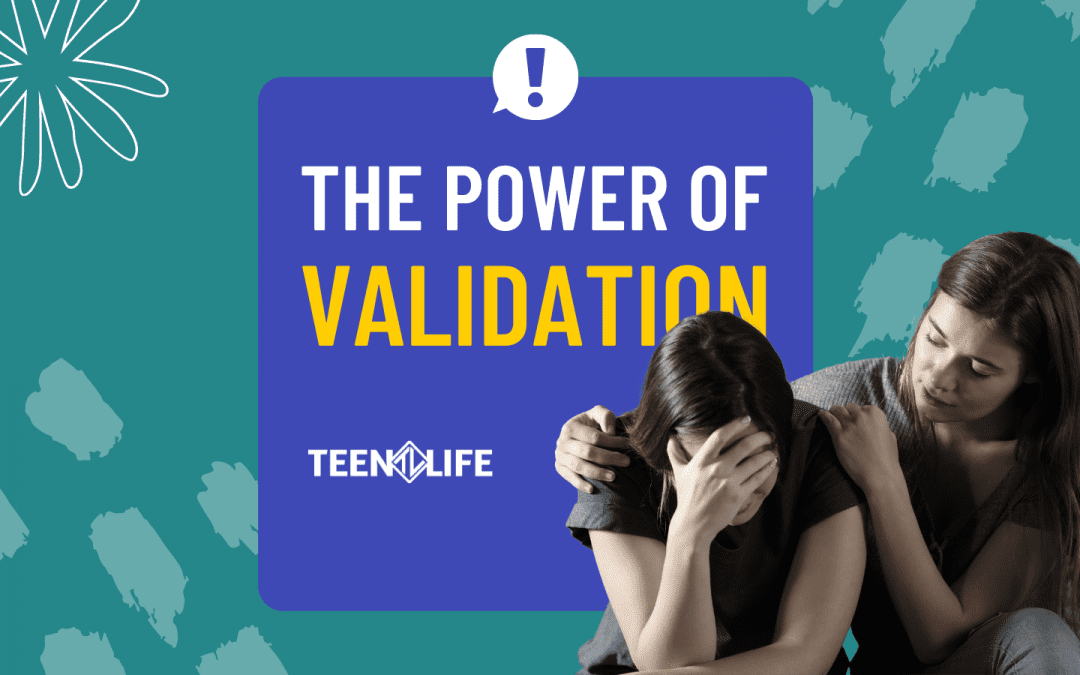Validating your teen’s emotions doesn’t mean you agree with their behavior.
But it can open the door to talking about it!
Do you ever get defensive in a conversation with your spouse or loved one because they just aren’t validating your feelings? Why can’t they simply acknowledge the frustration you’re feeling before swooping in to fix everything?
No? Is it just me?
If I am upset and someone tells me to “stop acting that way” and move on…those are fighting words! I think most of us can think of a time when a situation could have been made better by just having someone empathize and make space for what we are feeling.
So why do we not extend this same principle to teenagers and kids?
Take my 4-year-old for example. He is smarter and more capable than I often give him credit for. But he also has a wide range of emotions and regularly has trouble managing them in appropriate ways (sound like any teenagers you know?). As a parent, it is easy to ask him to be quiet, or stop crying, or quit yelling, or calm down. But what he really needs in that moment is for me to first validate his feelings.
In my house, it could look something like this:
Toddler: *crying because he has to go to bed*
Me: You are upset because you don’t want to stop playing. I understand how that would make you sad. But we have to go to bed so that we can have the energy to play tomorrow! What is the first thing you want to play with when we wake up in the morning?
After the situation has been diffused and he has calmed down, it is much easier to ask the question, “What is a better way for us to act next time we are upset?” I don’t know about you, but positive conversations rarely happen when we are in the heat of the moment. Your kids, teenagers, or spouse is probably not in the mood to be reasoned with if they don’t first feel heard and understood.
Here are a few reasons validation is so important:
It models healthy ways to talk about emotions. You can name their emotion and give them the chance to agree or name a different emotion. Verbalizing feelings is a skill that will benefit them far after they leave your house or classroom.
It reiterates that feelings are not a negative thing. We don’t want teenagers to feel like they are ever being punished for their feelings. Emotions aren’t negative! Often this negative connotation is put on our young men, but every gender and age deals with different emotions every day. We are not trying to correct emotions, but we can accept feelings and then work on better ways to react to them.
It builds self-confidence and trust. When you acknowledge feelings, you are communicating with your teenager that you are trustworthy. You see them and love them as they are – feelings and all! When they can put voice to their feelings, it will also build confidence. They know what is going on in their own mind and can work on tools that will help them express feelings in a way that is both truthful and empowering. When they control their reaction to feelings instead of letting emotions control them, it is a powerful thing!
This is a practice that I am still working on. I am not always perfect at this, but when I take the time to validate feelings first, I have found that some arguments are avoided and tantrums are shorter.
Validating feelings is not a miraculous trick. It won’t stop all disagreements or emotional outbursts. However, I do hope that it will lead to better understanding. I hope it will build trust between yourself and the teen (or child, or adult) that you love. I hope it will help you start positive conversations around emotions so that everyone involved can grow.

Karlie Duke
Communications Director
Karlie Duke | Director of Communications
Karlie has always had a heart for teenagers. Through her role at Teen Life, she loves to showcase the amazing stories coming out of Support Groups, but she is especially passionate about helping adults and teenagers find connection. Karlie has a BS in Communications with a minor in Family Studies from Abilene Christian University.
